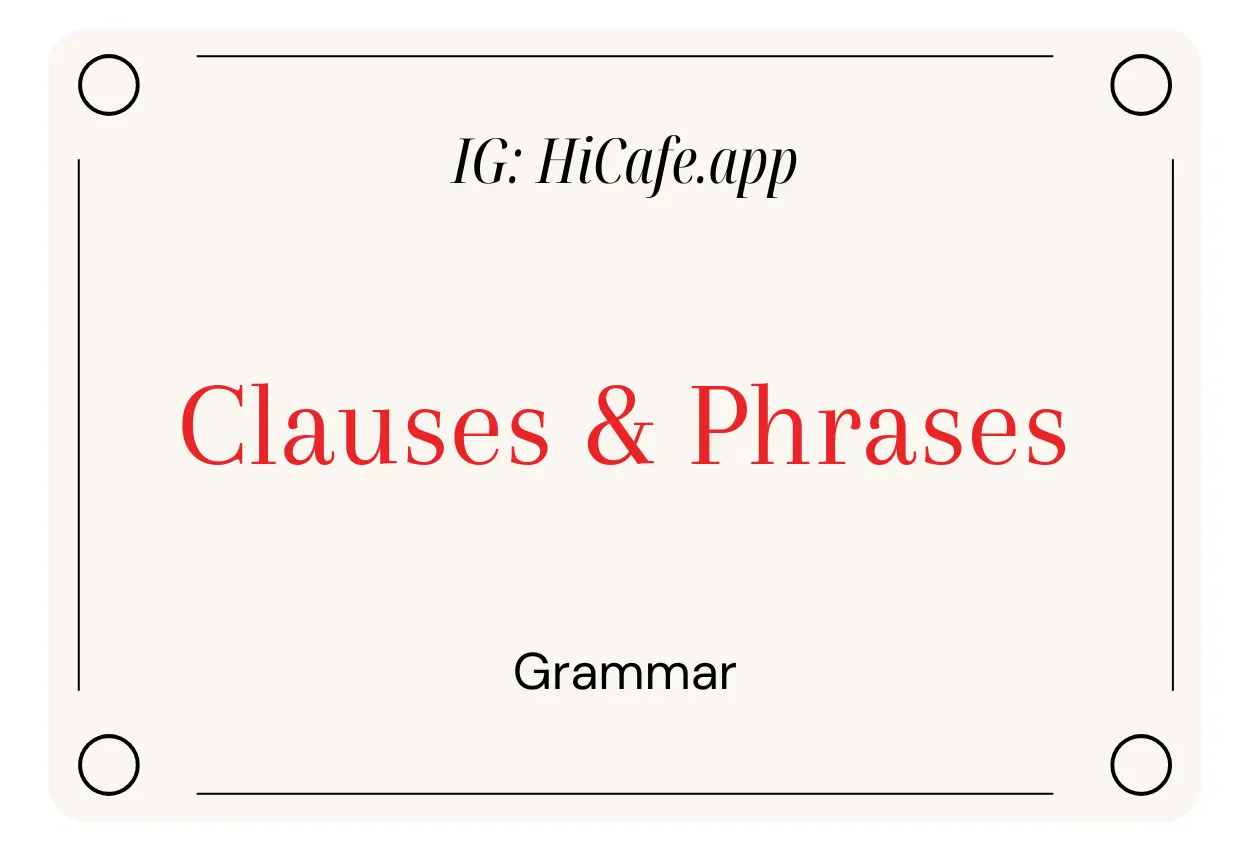
Grammar Level 6- Lesson Two- Clauses and Phrases in English
In this grammar lesson, you learn about Clauses and Phrases in English and how to use them in your English conversation and writing. Just follow examples of clauses and phrases and write them down a few times to learn them very well. After finishing this lesson, you should work on its quiz.
Grammar Recap
In our previous lesson, we covered the Simple Sentences in English If you just landed on this page, we suggest that you complete our previous lesson including its quizzes before continuing on this lesson.
Requirement Lessons
There is no required lessons for working and learning this lesson.
Examples of Clauses and Phrases
A clause has a subject and a verb, but it may or may not be a sentence.
Some examples:
Because he likes the house. This clause has a subject (he) and a verb (likes) but it lacks the main part of the sentence. However, it’s okay as an answer in a conversation. Also, avoid beginning a sentence with “because” unless you put two clauses together, such as….
Because he likes the house, he decided to buy it.
In the grammar Level 6 you will learn about many different kinds of clauses. A good knowledge of clauses will help improve your writing and speaking. There are two basic kinds of clauses.
Independent Clauses
Dependent Clauses
An independent Clause has a subject and a verb and it can stand on its own, serving as a complete sentence.
A Dependent Clause has a subject and a verb but it can not stand on its own. It needs an independent clause.
Before I went to school, I ate some breakfast.
Dependent clauses often begin with words such as before, after, while, during, when, because, if, etc.
Knowing how to use clauses will provide more options for you to express yourself. You can also say….
I ate some breakfast before I went to school.
—————————-
A phrase is a group of words that does not have a subject and a verb. For example:
This phrase tells us when something will happen, but there isn’t a subject, a person or a thing, and there isn’t a verb describing activity or existence. Here’s how to fix it:
I go to school in the morning.
Phrases are very important in English because they provide necessary information, as the examples below demonstrate.
Here are some examples of phrases:
The children are playing in the sand.
“…in the sand” tells us where the children are playing. We could write the sentence like this:
The children are playing.
This is a good sentence but the phrase in the sand provides important information.
The table in the dining room is very long.
A: What’s your favorite thing to do on the weekend?
B: Playing guitar.
(Playing guitar is my favorite thing to do on the weekend. A response that doesn’t have a clear subject or verb is a phrase. Many people use them in conversation, and that’s okay.)
Quiz for Clauses and Phrases
Now that you learned your new lesson, it is time to go to the Clauses and Phrases page and finish your quiz. While working on your quiz, you can always go back to its lesson to refresh your memory.
Private Lessons in English
If you need help with quizzes of this lesson, you can hire one of our expert private English teachers by going to our Private English Tutoring page and submit a request. When submitting your request, make sure to mention the grammar level and lesson number.
Next Grammar Lesson
In our next lesson, we will cover the Compound Sentence Grammar Before moving to the next lesson, we suggest that you complete this lesson including its quizzes.
Related Grammar Lessons
Popular and Practical American Phrases
Grammar Level 6 Outline
If you wish to explore all lessons that are covered in HiCafe Grammar Level 6, you can visit the Grammar Level 6 Outline page.
Practice English Grammar Skills
For a comprehensive practice of English grammar with quizzes, you can visit the Improve English Grammar Skills page to view HiCafe 250 grammar lessons in 7 levels plus prepositions and pronouns.


